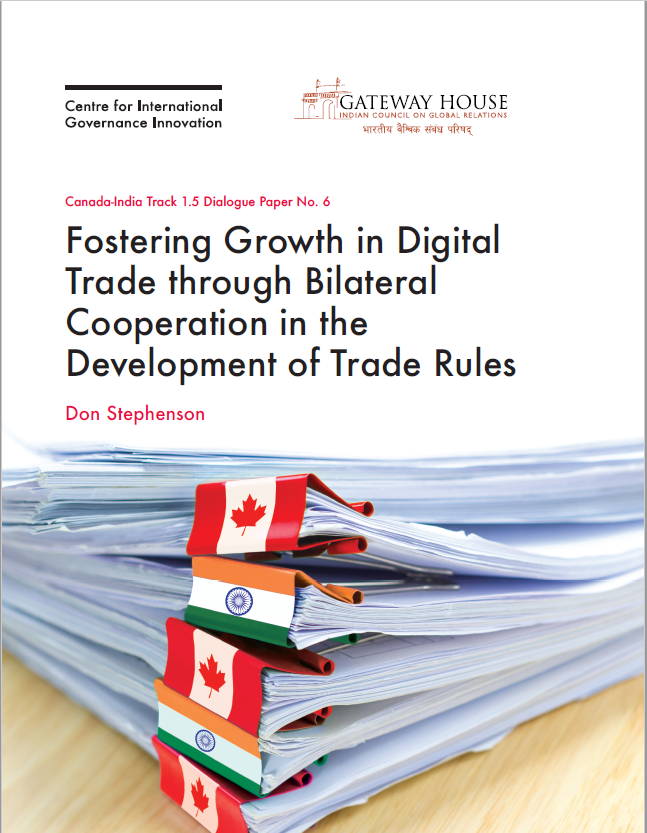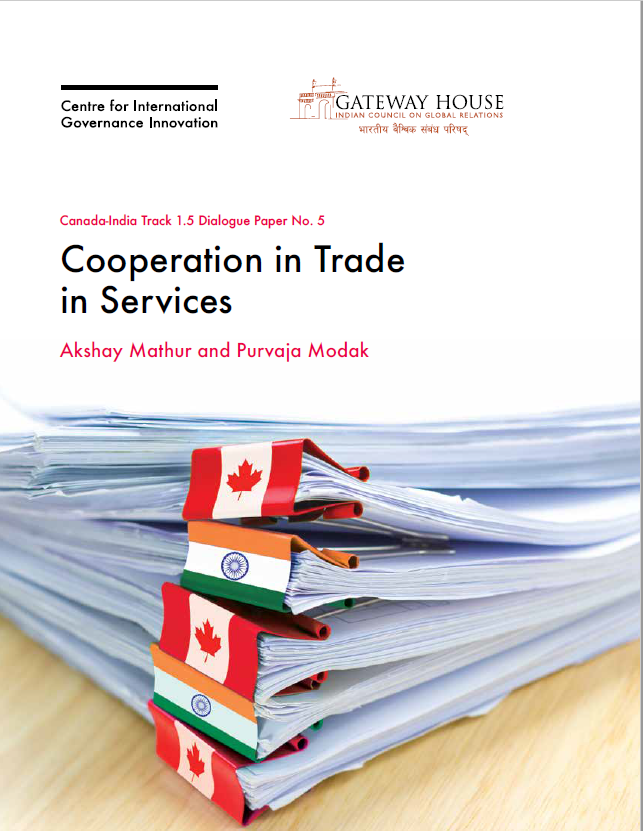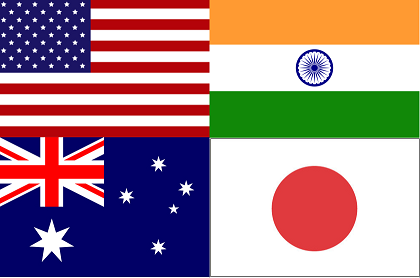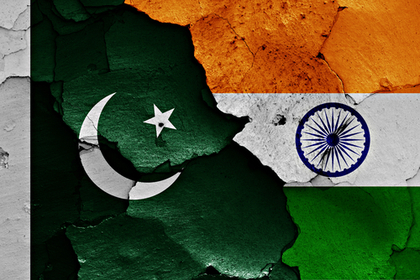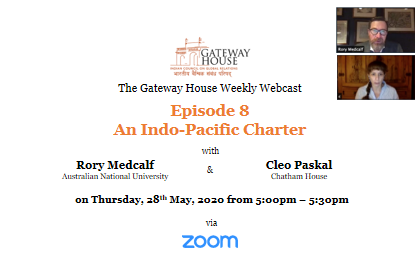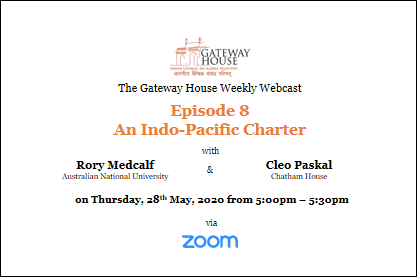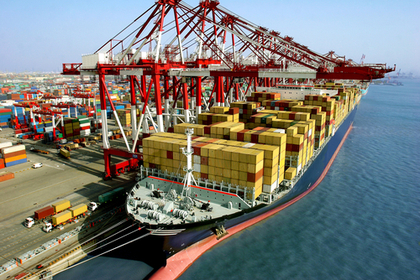Fostering Growth in Digital Trade
The shifting trends in trade, especially given the growth in communications capacity and reduced cost of computing have altered traditional economic development. India and Canada have a shared commercial interest in E-trade. Both countries need to align their resources to frame trade rules of the new digital economy, to mutual benefit.

